The 2025 Mazda CX-70 Is Literally Just A CX-90 With Only Two Rows Of Seats And A Different Name

Back in 2021 Mazda announced plans to introduce three new crossovers in the U.S. — first came the CX-50, which rode on an existing platform, and then last year saw the debut of the CX-90, a large three-row replacement for the CX-9 that uses a new rear-drive platform with new inline-6 and plug-in-hybrid powertrains.
The Mazda MX-30 Is No More (In The U.S.)
Mazda said the third model would be the two-row CX-70, and it would use the same platform and engines as the CX-90. We expected the CX-70 would be a unique vehicle, probably an Americanized, slightly larger version of the midsize CX-60 that’s sold in other markets, but it turns out the 2025 Mazda CX-70 is quite literally just a CX-90 with only two rows of seats.
OK, so the CX-70 has gloss-black exterior trim, different bumper designs with sportier-looking intakes and new wheels, but otherwise it is identical in size and design to the CX-90. I do think the CX-70’s front end treatment is more appealing, and it remains a good-looking car overall, but the lack of overt differentiation is very strange.
Photo: Daniel Golson/Jalopnik
It’s even stranger when you hop inside. Aside from a new red leather color and the lack of the CX-90’s standard third row, the CX-70’s cabin is also identical to the CX-90. Mazda didn’t even push the second row back or redesign it to give rear passengers more space. Using buttons in the cargo area the second row power folds to create a flat floor, and underneath the cargo floor cover are removable storage boxes with dividers that can fit a lot of stuff. Mazda says the moldings around the rear wheel wells are flatter to give more space, but the difference is extremely minor.
The CX-70 is launching with the same powertrains as the CX-90. Buyers can choose Mazda’s new turbocharged 3.3-liter inline-6 engine, which has a mild-hybrid setup, or go for the plug-in hybrid that pairs a turbocharged 2.5-liter inline-4 with an electric motor. All-wheel drive should be standard with both powertrains. Two-thirds of CX-90s sold have been the PHEV, and Mazda expects the same will go for the CX-70. There are no numbers available yet, but power output should be the same as in the CX-90, and the CX-70 doesn’t get any mechanical changes to the suspension, steering or other components.
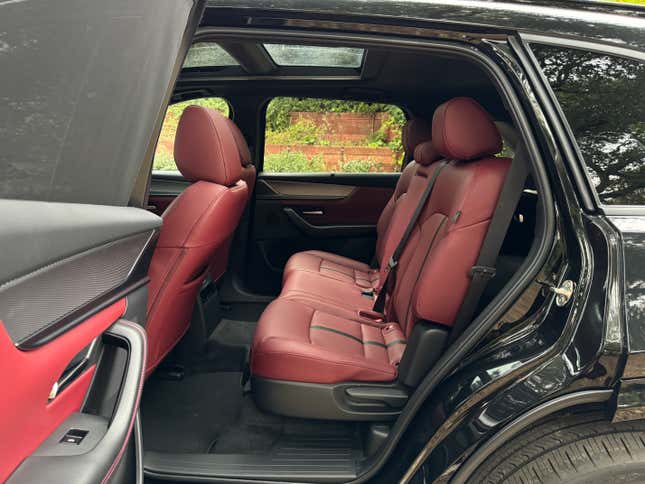
Photo: Daniel Golson/Jalopnik
So, why not just call this model something like CX-90 S or CX-90 Sport instead of giving it a totally separate name? Hell, even just making the two-row setup an option or package on the CX-90 without changing the name at all would have worked. When I got to check out the CX-70 in person a few weeks ago, a Mazda U.S. spokesperson told me that Mazda considered naming it some variant of CX-90, but decided against it because CX-70 and CX-90 customers are differentiated enough and are not shopping in the same segment.
There absolutely is a market for the CX-70, and the customers are certainly different if they’re looking for two rows of seats versus three. And there’s also nothing wrong with offering the exact same car in either seat configuration. But the naming and marketing is disingenuous to me, especially after Mazda has been hyping up the CX-70 as an exciting new model debut for the past couple years. Mazda’s release also says nothing about specs or mention the CX-70’s relation to the CX-90 at all — full specs along with pricing should come in a month or two, at which point the initial reveal buzz will have worn off.
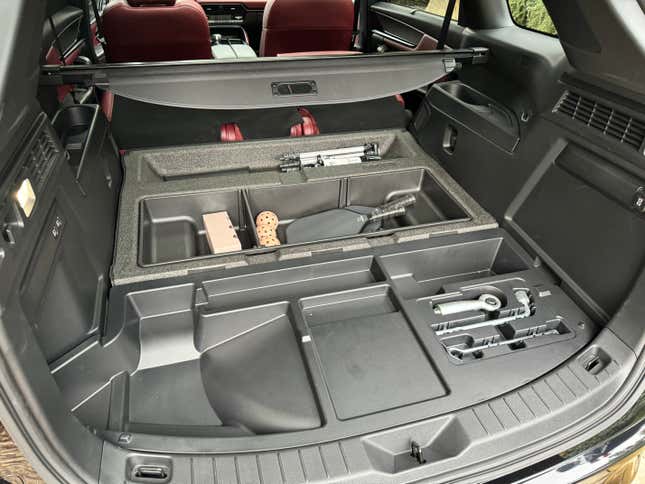
Photo: Daniel Golson/Jalopnik
It cracks me up that Mazda uses the ever-annoying phrase “first-ever” to describe the CX-70 — yes, it’s technically the first time that name has been used, but what does “first-ever” actually mean? The press release goes on to say that “Mazda’s purposeful approach in designing CX-70 for its customers elevates CX-70 to a higher standard,” which feels condescending. If CX-70 and CX-90 customers are so different, why are the cars essentially the same? Or why not make the connection more clear?
The CX-70 name should have been reserved for a vehicle that’s actually different from Mazda’s other offerings, and I think that’s what people have been expecting. Especially as Mazda continues to push upmarket, the company would benefit from a unique midsize SUV to slot between the CX-50 and CX-90, one that could have either two or three rows of seats and better compete against cars like the new Hyundai Santa Fe. It doesn’t sound like the CX-70 will cost that much less than the CX-90’s $40,970 base price either, which is a big step up from the $31,675 CX-50.
Selling a version of the CX-90 with only two rows of seats makes sense. The “first-ever” 2025 Mazda CX-70 does not.
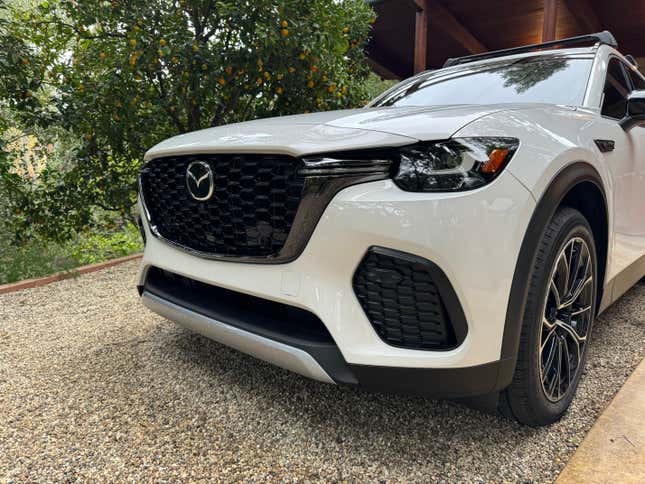
Photo: Daniel Golson/Jalopnik
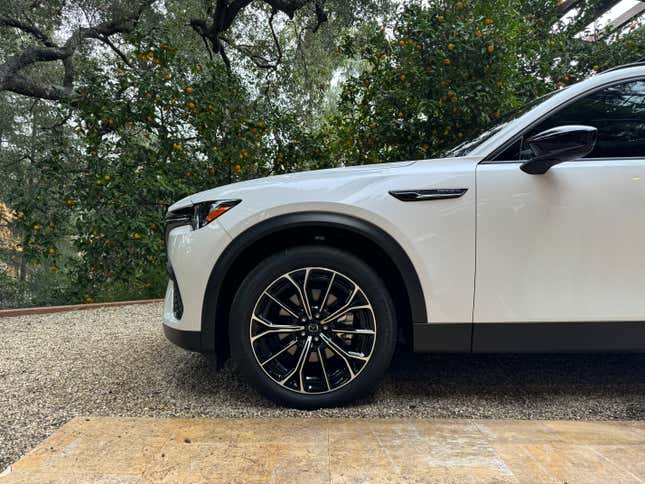
Photo: Daniel Golson/Jalopnik
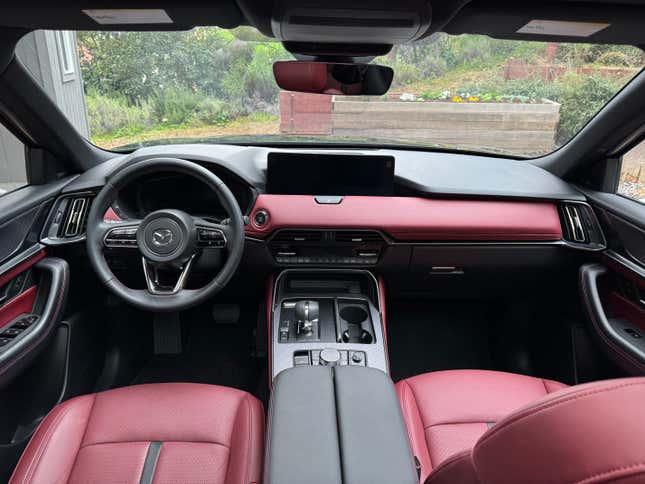
Photo: Daniel Golson/Jalopnik

Photo: Daniel Golson/Jalopnik
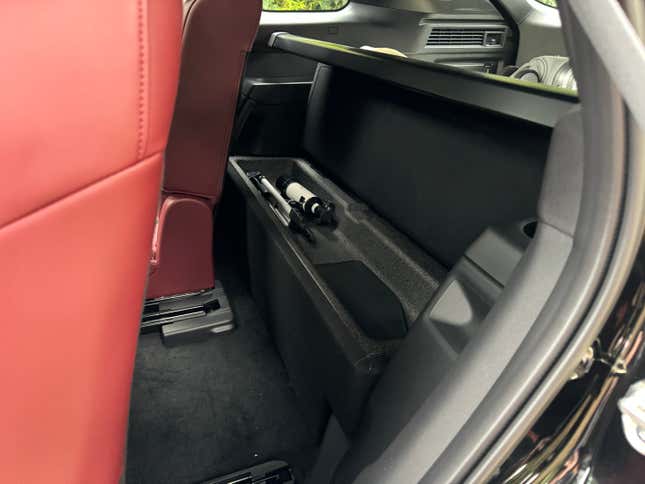
Photo: Daniel Golson/Jalopnik

Photo: Daniel Golson/Jalopnik


